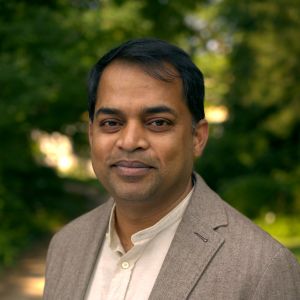Bionote

Shahrear Roman is a doctoral researcher with the Land Economics Group at the Institute for Food and Resource Economics (ILR), Faculty of Agriculture, University of Bonn, Germany. He employs rigorous quantitative analysis and innovative machine learning modeling to explore the complexities of agricultural innovations, policies and environmental dynamics. His research spans agricultural economics, policy analysis, development economics, environmental economics, data science, and machine learning. Shahrear earned a second master’s degree in Agriculture and Food Economics from the University of Bonn, following his bachelor’s and first master’s degrees in economics from the University of Dhaka, Bangladesh. Additionally, he served as a faculty member at Khulna University of Engineering and Technology from 2012 to 2020.
Presentation Abstract
Smart farming innovations hold significant potential for enhancing agricultural productivity, sustainability, and resilience. However, magnitude and distribution of this potential are unclear, as we are just in the beginning of their development and adoption. Here, we combine a large global survey with machine learning modelling, to globally model the potential of various smart farming innovations (according to either current or future profitability) and where this overlaps with grand sustainable challenges that they can potentially contribute to mitigating. Specifically, we model the potential of sensing technologies for mapping input needs and for applying inputs, autonomous machinery, GPS steering assistance, and smart irrigation. Analyzed sustainability challenges are nutrient imbalances, water scarcity, pesticide pollution, and biodiversity loss. We also consider future scenarios, such as changes in economic development, to assess how the profitability of the here analyzed innovations might change in response to expected societal changes. Our findings provide the evidence-basis for a wide range of policies as well as business decisions, and our provided data allows for many follow-up studies.
Co-Authors: Hadi Hadi1†, Wyclife Agumba Oluoch1†, David Zilberman2†, David Wuepper1
1Land Economics, University of Bonn, Germany
2University of California, Berkeley, USA.